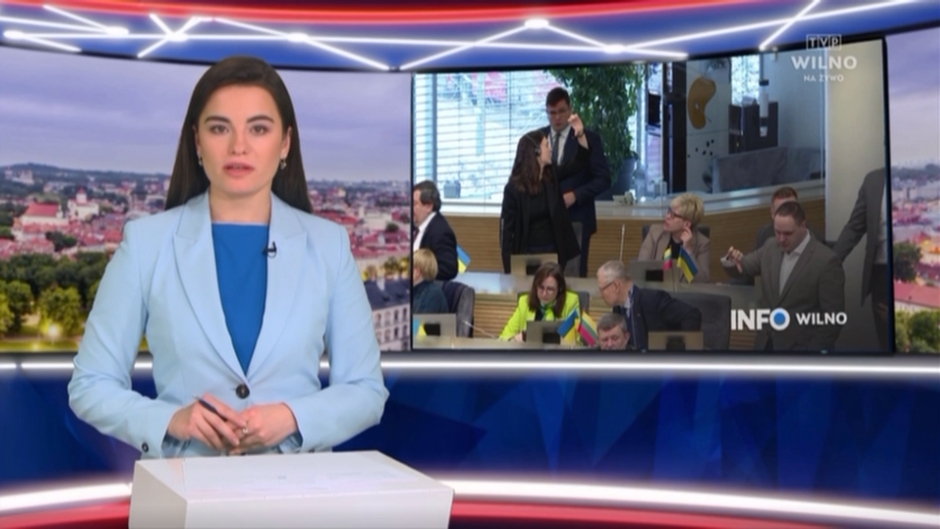- December 2, 2015
- 286
Tomas Venclova received a Jerzy Giedroyc Prize.

Tomas Venclova, poet, essayist, translator, and the Great Lithuanian Duchy Institute from Kaunas have both won a Jerzy Giedroyc Prize, which have been awarded for the 15th time. The Editors of “Rzeczpospolita” give the award to persons and institutions that work towards fostering a good relationship between Poland and other countries from Central-Eastern Europe. This time the jury moved away from the tradition of awarding the Prize to Poles and decided to honour Lithuanians. The ceremony took place in Warsaw in the National Library of the Palace of the Republic (Pałac Rzeczpospolitej).
“Reality still proves that Francis Fukuyama was wrong in his famous book. History is not over and it still affects us. Political realism, taught by the editor of Parisian “Culture” (Kultura), is even more important.” – said Bogusław Chrabota, Chief Editor and leader of the jury of the Jerzy Giedroyc “Rzeczpospolita” Prize.
Bogusław Chrabota emphasized that Tomas Vencloca received an award for ‘always standing by Jerzy Giedroyc’s ideas and invaluable contribution to the resistance against Soviet totalitarianism, the fight for freedom and building positive neighbourly relations in Central-Eastern Europe, including a good Polish-Lithuanian relationship”.
The speech was given by Krzysztof Czyżewski, co-founder of “Borderland – art, cultures, nations” (Pogranicze – sztuk, kultur, narodów) Centre and Borderland Foundation (Fundacja Pogranicze). “Tomas Venclova has been called a son of three literatures: Lithuanian, Polish and Russian, by the outstanding Russian poet Josif Brodoski. We also know him as a good neighbour. It is good for Poles to have a Lithuanian like this as a neighbor. Is it not the kind of neighborhood, for which Jerzy Giedroyc and Parisian ‘Culture’ fought for?” – Czyżewski asked rhetorically.
The President of the Borderland Foundation emphasized that even in USSR Tomas Venclova had to face the “Lithuanian Bermuda Triangle”, i.e. the neighborhood of Lithuanians with Jews, Russians and Poles. In the second half of the 70s he wrote a series of essays, which undertook the most painful matters of this border side, which were being distorted or pushed into the realm of taboo, by both Lithuanian nationalists and Soviet censorship. Truth was the most important thing to him. Tomas Venclova is a citizen of the world, convinced that “it is the only way of being a decent nationalist”, because the survival and development of the nation in this world is integral with fighting isolation.” – Czyżewski highlighted.
The Prize was also awarded to the Great Lithuanian Duchy Institute from Kaunas – a non-governmental organization which gathers intellectuals and those from the field of culture in Lithuania, Belarus, Ukraine and Poland. Hanna Wawrowska, secretary of the jury, underlined that the Institute was awarded for “taking a difficult mission to promote the heritage of the Great Lithuanian Duchy in the area of modern Lithuania, Belarus, Ukraine and Poland, especially the traditions of coexistence of cultures, languages, religions and nations.”
Jan Malicki, the Principal of East European Studies at UV, who won the Jerzy Giedroyc Prize in 2013, said that the Polish-Lithuanian relationship needs improvements. “It is almost a sin that nations, which are so close historically and geographically, have not yet undertaken a closer alliance.” – Jan Malicki added.
The ceremony in the Palace of the Republic – National Library was honoured by Andrzej Seweryn, who read a poem by Tomas Venclova “Conversation in the winter” (Rozmowa zimą), the translation being by Czesław Miłosz.
The Jerzy Giedroyc Prize was established by the editors of “Rzeczpospolita” in 2001, to mark the first anniversary of the death of the editor and creator of “Culture” and Literary Institute in Paris. In previous years the winners were: Andrzej Przewoźnik, secretary of the Council of the Protection of Memory of the Battle and Martyrdom, Jan Malicki, co-founder of East European Studies, and also the politician Paweł Kowal and journalist Agnieszka Romaszewska-Guzy.
Based on: rp.pl, polskieradio.pl
Translated by Karolina Jarmużewska within the framework of a traineeship programme of the European Foundation of Human Rights, www.efhr.eu.


